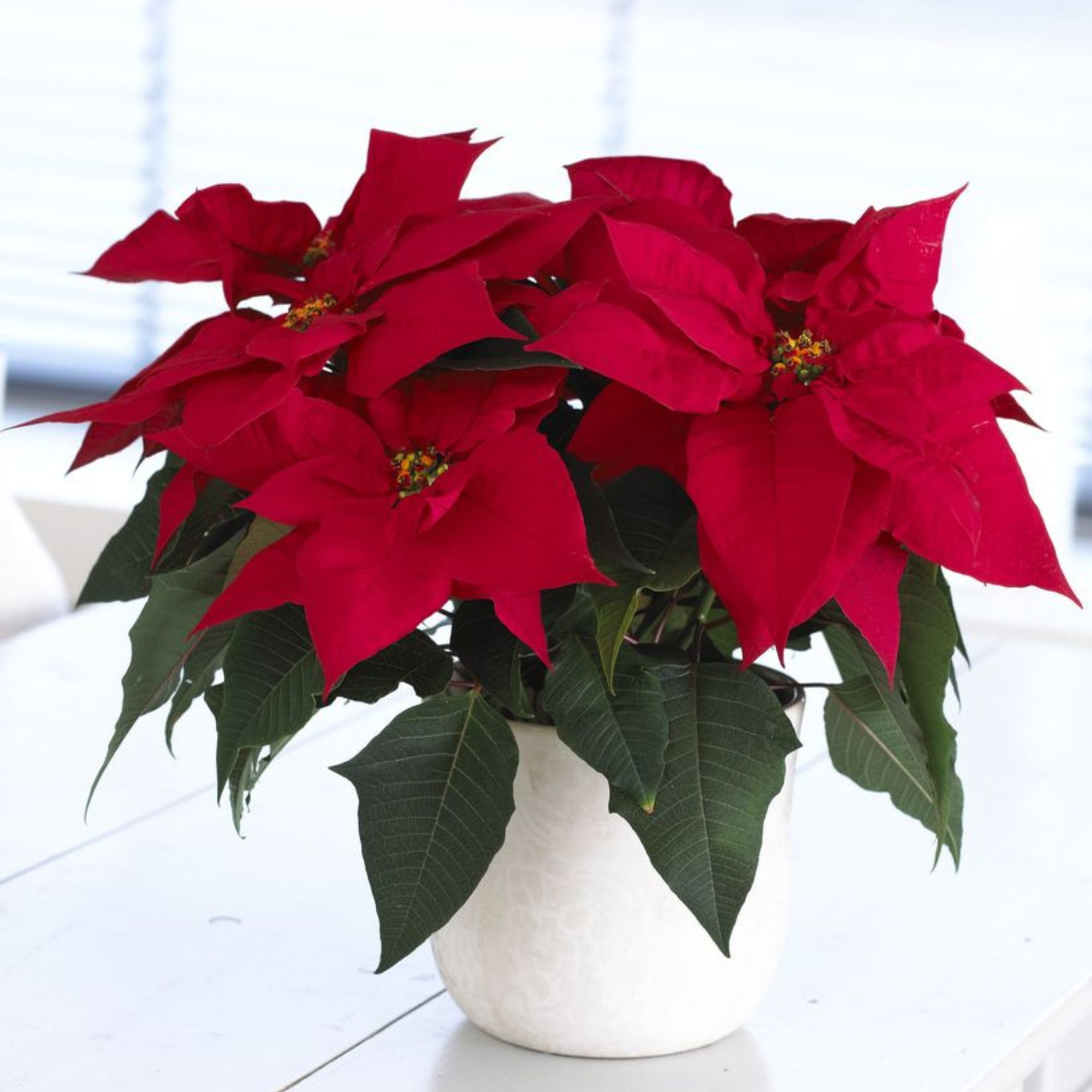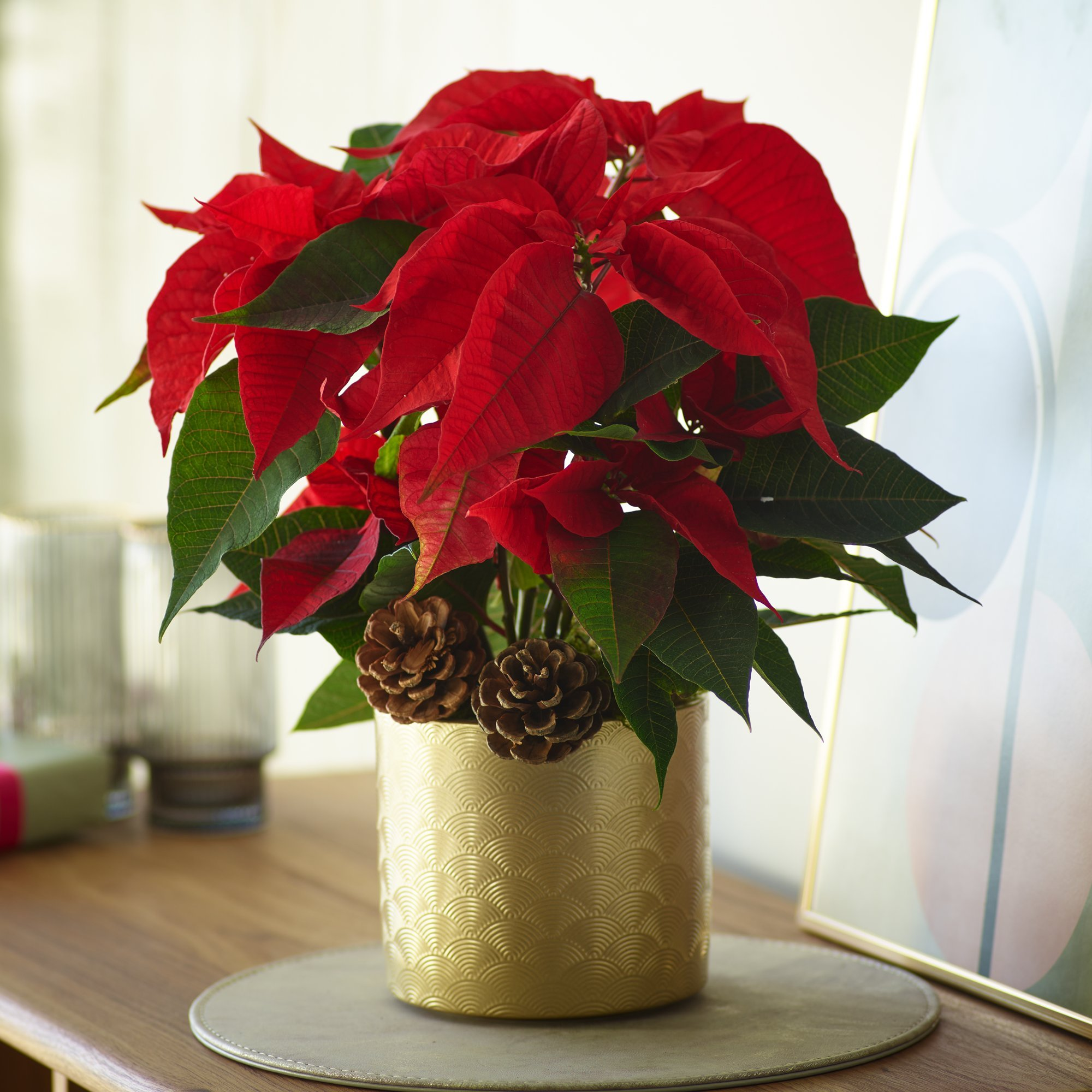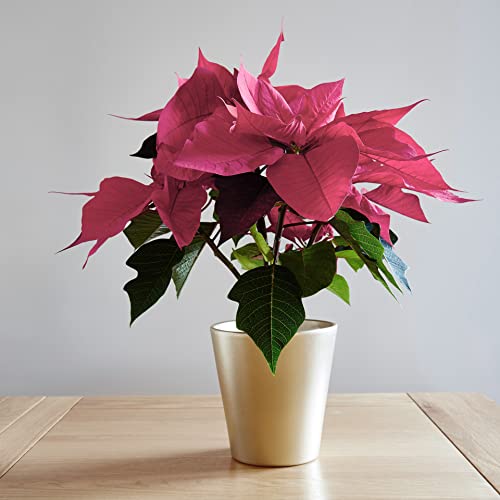How long does a poinsettia last? 4 ways to beat the average lifespan
With the right care, your poinsettia plant could last a lot longer than you'd expect

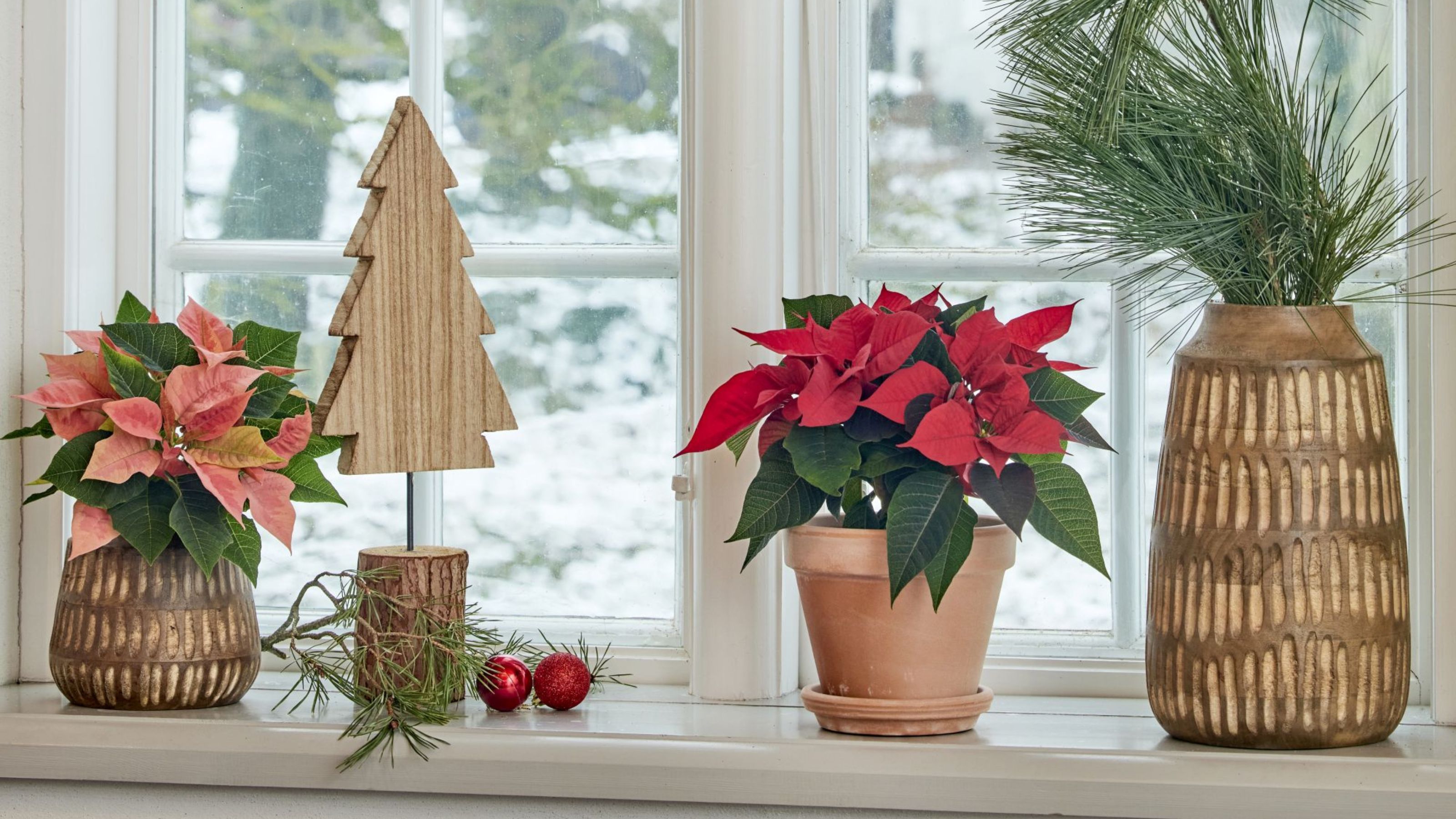
Poinsettias are the perfect addition to the home over Christmas, ringing in the festive period with their signature red bracts. But how long does a poinsettia last?
Well, if you know how to care for poinsettias properly, your plant should survive Christmas. A month or so after that, many people throw their plants away – but if you know what to do with a poinsettia after Christmas, your plant could last a lot longer.
So, how long does a poinsettia last with a little extra care? We asked houseplant experts and rounded up a list of tips to help you extend your plant's lifespan.

Usually, a poinsettia will last for a couple of months after purchase. If you bought your plant in December, that takes us into next year.
'With the right care, poinsettias should stay looking their beautiful best well into the new year,' says Dr Susanne Lux, houseplant expert at Stars for Europe.
'Following the right care, a poinsettia can last for two to three months in its full festive glory,' agrees Jo Lambell, founder of Beards & Daisies.
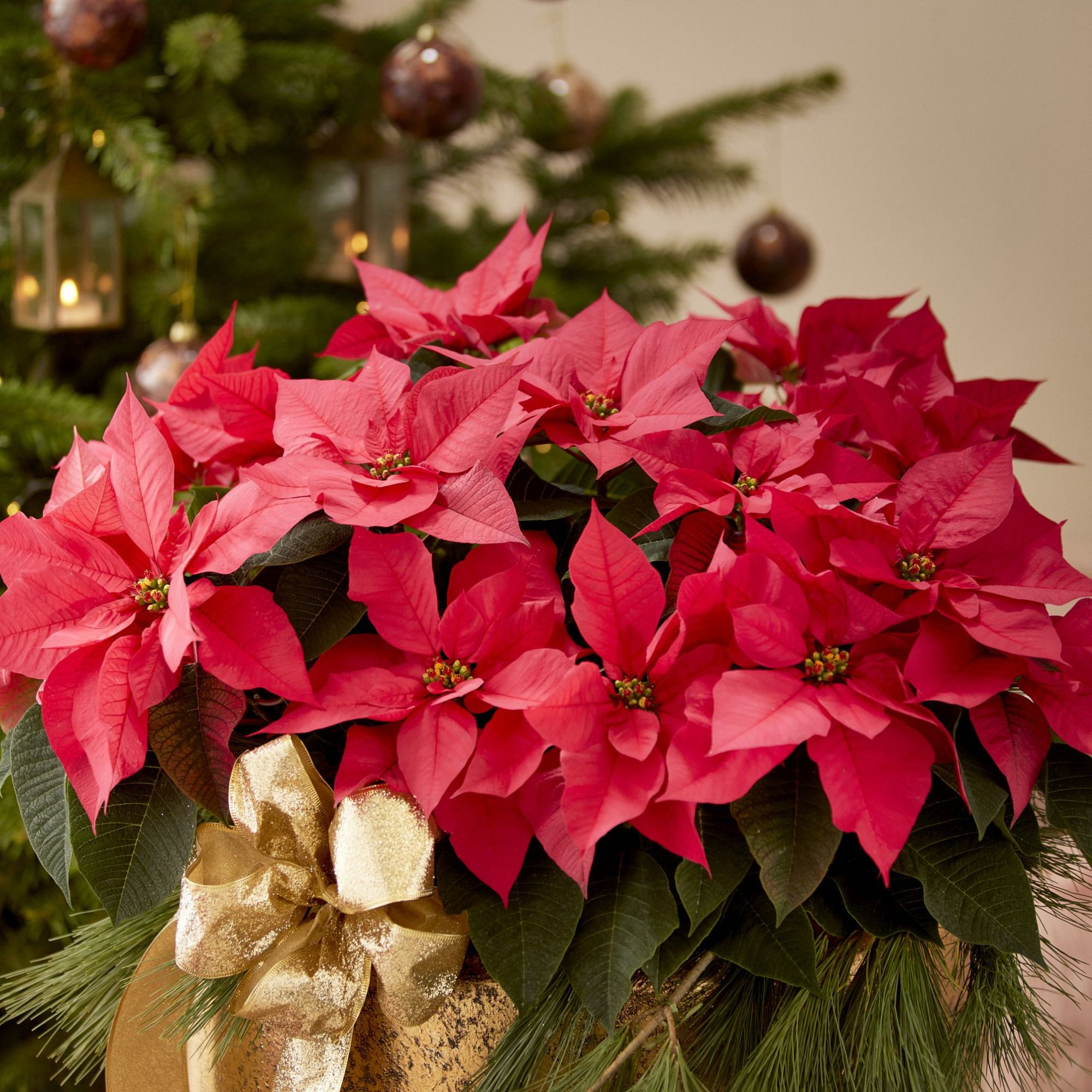
However, if you really tune into your plant's needs and look after it well, it can live on like any other houseplant.
Sign up to our newsletter for style inspiration, real homes, project and garden advice and shopping know-how
'If well looked after, it can even survive year-round and rebloom the following festive season,' says Jo.
Keeping a poinsettia plant in tip-top shape for another year is more challenging, though.
'The plants themselves have the potential to last much longer (like a regular houseplant), but getting them to reflower in colour is much trickier and requires very specific light levels,' explains Dr Lux.

Dr Susanne Lux is the head of Green Marketing Europe, which is devoted to promoting plants across the continent and Great Britain. Dr Lux has supervised numerous projects in the area of market research and market analysis in the green sector, including woody plants and perennials, bedding and balcony plants and flowering indoor plants.
How to make a poinsettia last longer
With a little extra TLC, a poinsettia can really beat the odds in terms of its lifespan. Here's how you can bolster its chances.
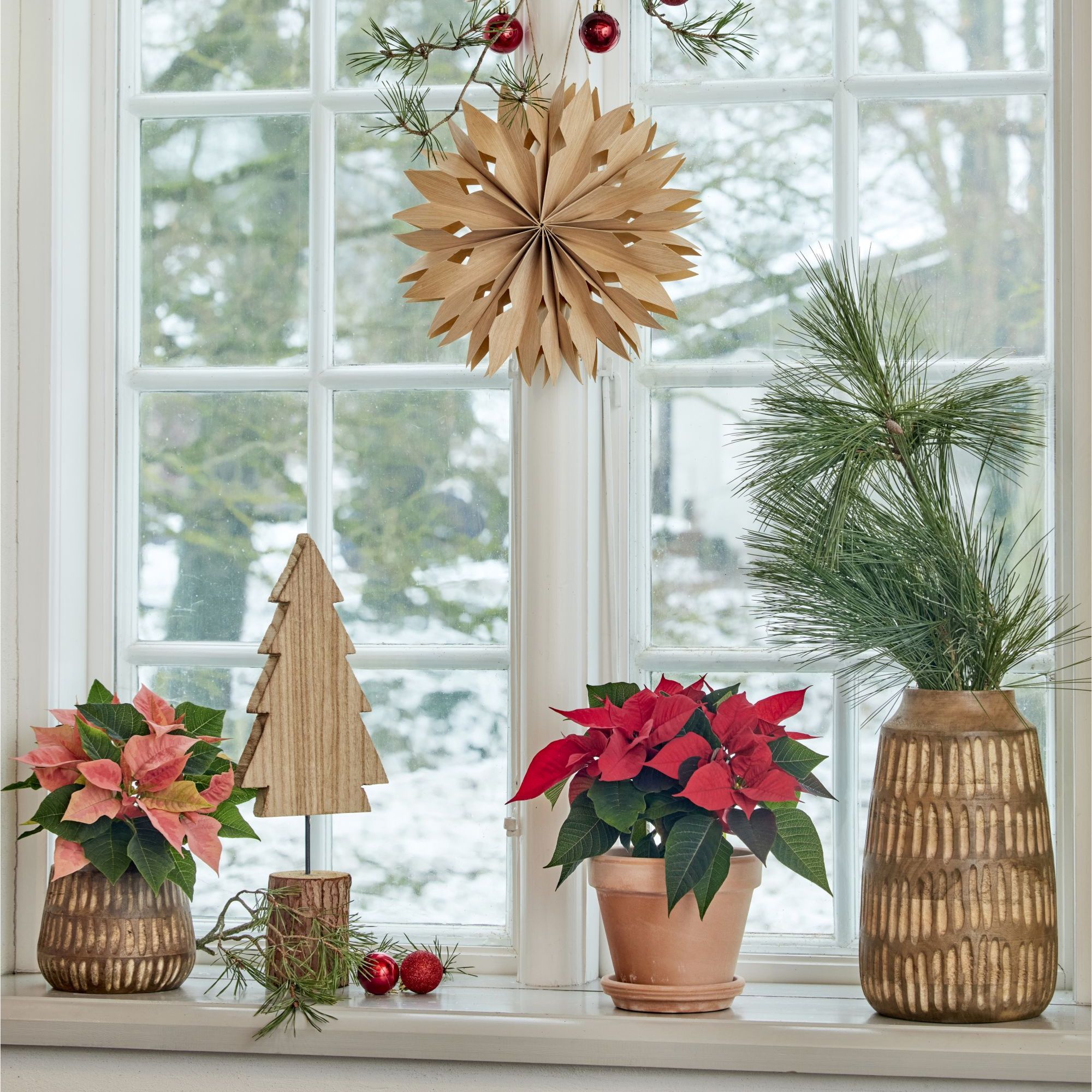
1. Water correctly
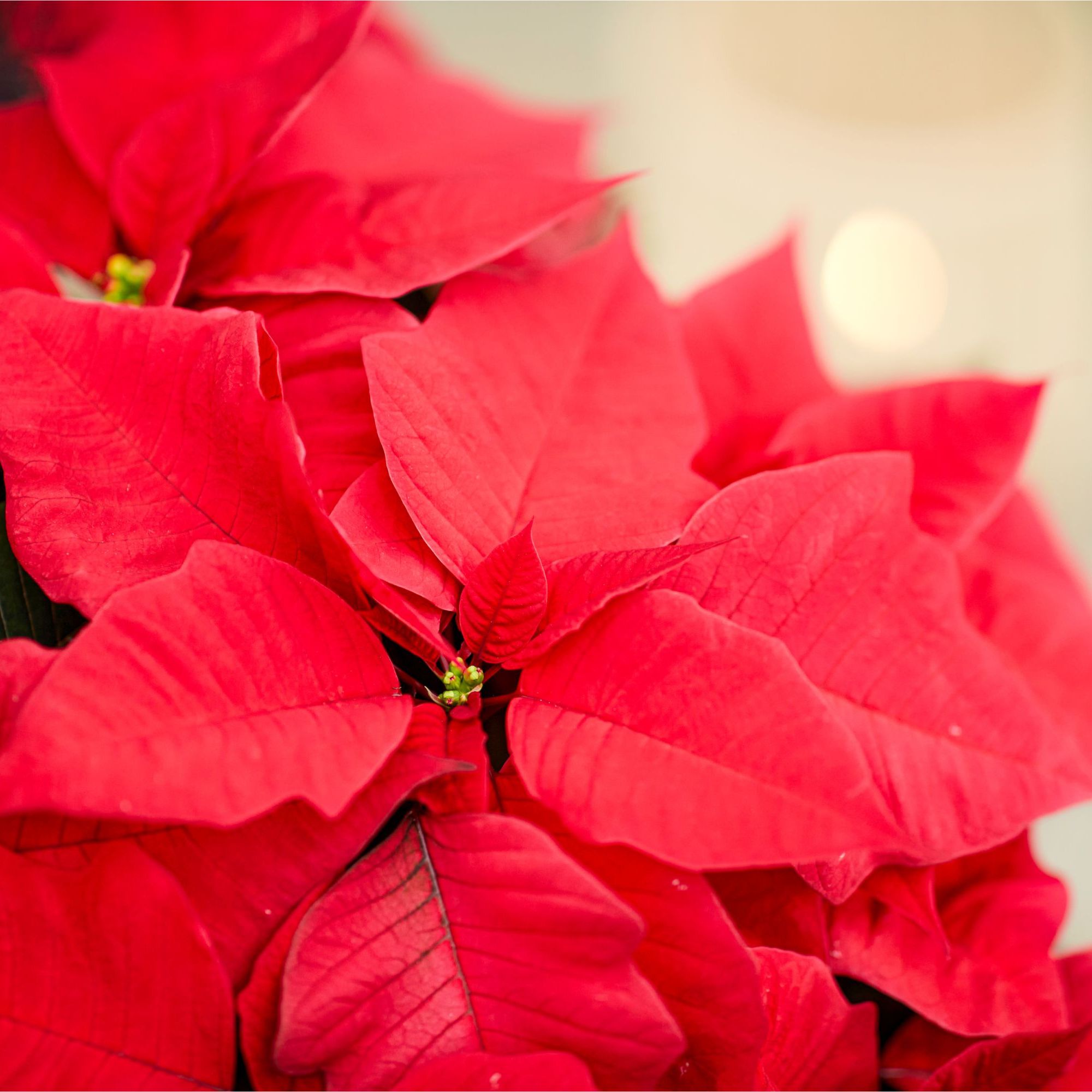
Poinsettias hate wet soil, so knowing how often you should water a poinsettia is crucial.
'Make sure to keep the soil slightly moist, but don’t let the plant sit in water,' says Jo. 'Good drainage is key. Water only when the top inch of soil feels quite dry.'
Overwatering and underwatering are common causes of poinsettias dropping leaves, so keeping up with an appropriate watering schedule is key to helping them survive.
2. Fertilise at the right time
Poinsettias can be fertilised just like other houseplants to give them a boost, but you'll need to time it right.
'Use a liquid fertiliser to feed your plant In February,' advises Vicky Salmon, in-house florist at Interflora. 'It’ll be around this time you notice the coloured bracts starting to fade, the stems becoming thicker and the leaves starting to drop.'
You can buy poinsettia-specific feeds, like the Growth Technology Poinsettia Focus Concentrated Plant Food from Amazon, or go for a multi-purpose houseplant fertiliser.
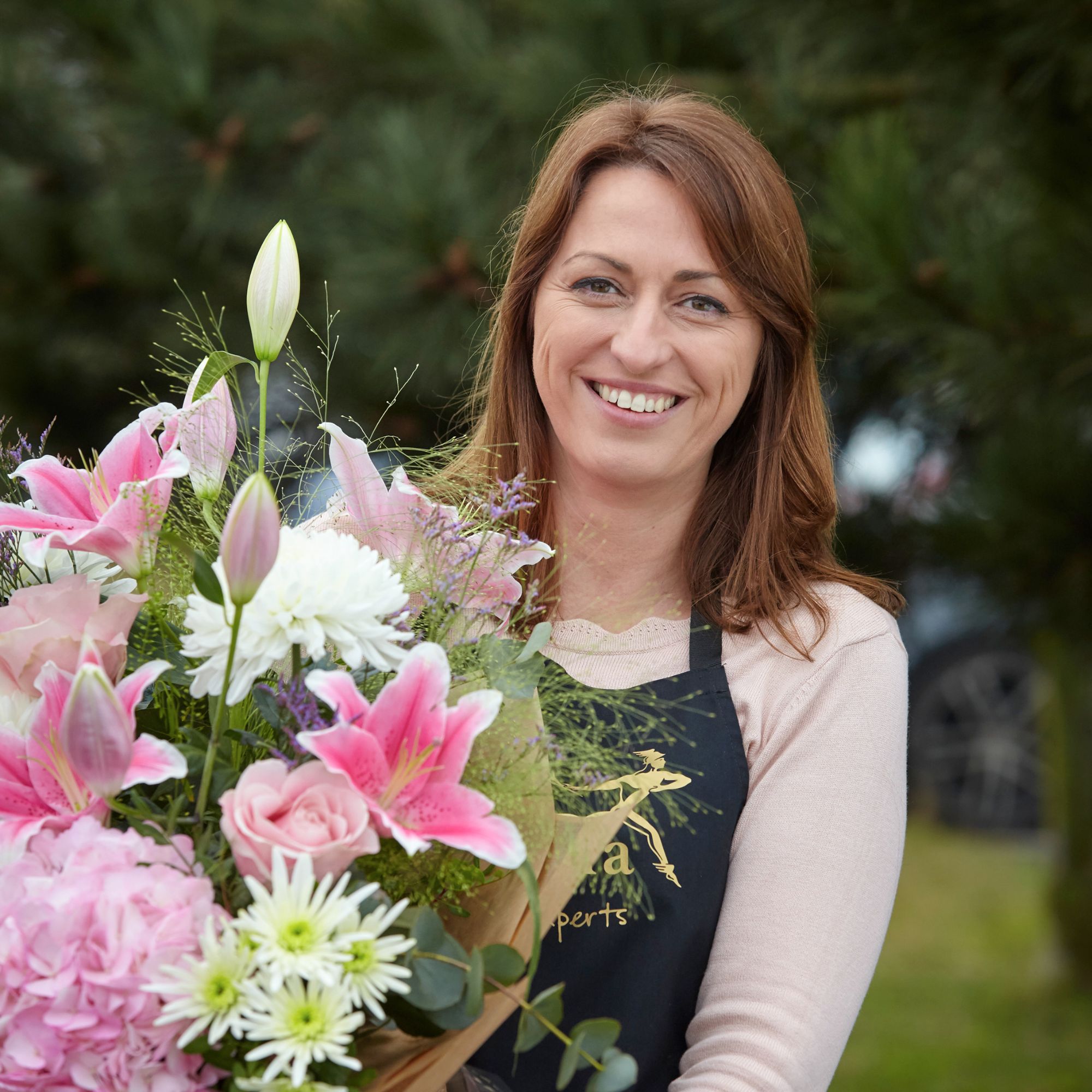
After graduating with a design degree, Vicky was delighted to continue on a creative career path at Interflora with roles in marketing and product development. During her time at Interflora, Vicky expanded her creative and technical skills by training as a florist.
In addition to her floristry knowledge, Vicky oversees the development and photography of all floral and plant products.
3. Cut the plant back
Pruning your poinsettia in spring will encourage better growth and displays later in the year.
'Come March, be brave and cut the poinsettia’s stems under the leaf node, just below the bracts, and then leave the plant in its pot, undisturbed for a few months,' Vicky advises.
A cooler spot, no warmer than 14°C, is best for poinsettias at this stage.
4. Repot if necessary
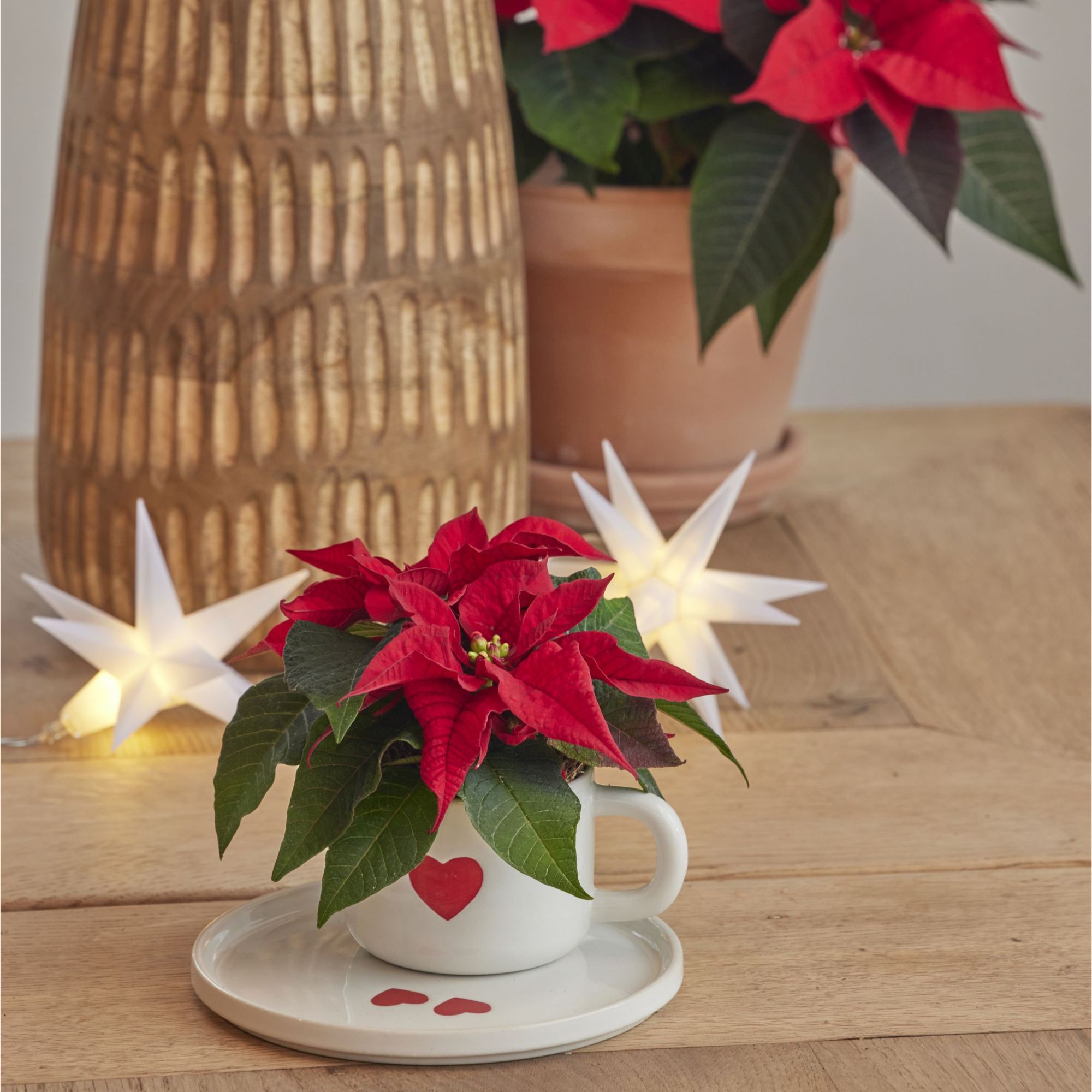
If your poinsettia becomes rootbound, meaning the roots are dense and tangled, you'll need to repot it so that it continues to grow healthily. Generally, you should be thinking about repotting your poinsettia around May or June.
'Around June, repot your plant, fertilise it a second time and place it outside in indirect sunlight until early September when it’s time to bring it in and shelter it from the elements,' advises Vicky from Interflora. Alternatively, you can grow the plant on indoors.
Where to buy a poinsettia plant
FAQs
When should I throw away my poinsettia?
If you've noticed the leaves and bracts of your poinsettia wilting or too many have dropped, it might be time to add it to the compost pile.
Of course, if you catch the symptoms early enough, you might be able to alter your watering schedule or move the plant to a more suitable location. But if you've had your plant for a few months and you're not planning on growing it on as a houseplant, late winter and early spring is when many get rid of their poinsettias.
Do poinsettias come back every year?
With the right care, yes! As long as you follow the above tips, keeping the soil consistently moist (but never wet), pruning, fertilising and repotting when needed, your plant should survive another year.
You'll also need to make sure it's in a suitable location. 'Place your poinsettia in a spot with indirect sunlight during the day, letting it soak up the light without risking sunburn,' advises Vicky from Interflora. 'It's also a good idea to keep your poinsettia away from radiators, cold windows and draughts to keep it happy.'
How long does a poinsettia last? As long as you want it to! With the right care, of course.

Sophie joined the Ideal Home team as Gardens Editor in June 2024. After studying English at Royal Holloway, University of London, she began writing for Grow Your Own, which spurred on her love of gardening. She's tried growing almost every vegetable under the sun, and has a soft spot for roses and dinnerplate dahlias.
As Gardens Editor, Sophie's always on the lookout for the latest garden trend. She loves sharing growing hacks for every space, from herbaceous borders to balconies.
